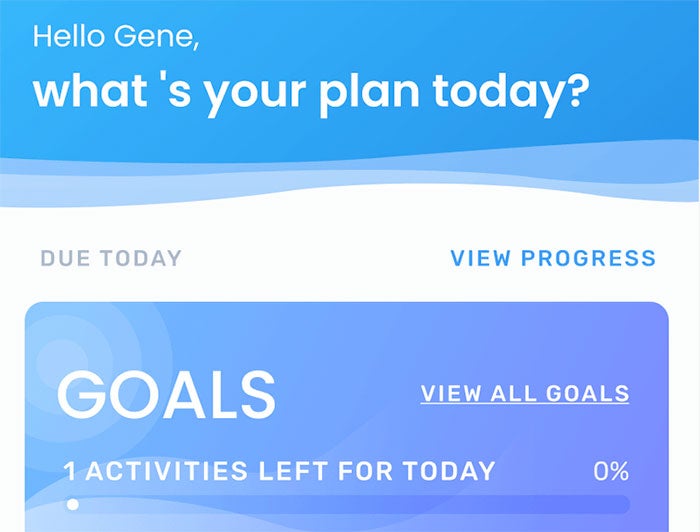Depression care without the delay: MUSC expert’s app shows promising results
Medical University of South Carolina
Charleston, S.C.

When a patient has depression, often the first medical professional to spot it is their primary care provider, thanks to routine screenings many offices offer. However, getting under the care of a behavioral health professional may involve a long wait — and the patient needs help now.
Jennifer Dahne, Ph.D., a professor in the Department of Psychiatry and Behavioral Sciences at the Medical University of South Carolina, developed the free Moodivate app (available on both iOS and Android) to address the immediate need for behavioral health care so patients can get help without a long wait time or even an insurance co-pay.
Moodivate is a self-directed app that relies on behavioral action therapy, which encourages patients to engage in activities that they enjoy or find meaningful. Users select measurable goals relating to health, relationships, education/career, daily responsibilities, recreation or a combination of these. After creating their goals, users can check off their completed actions and rate their daily mood. Every two weeks the app invites users to re-assess their depression.
“With behavioral activation, we help a patient to change what they're doing to change how they're feeling,” said Dahne. “Patients often think they can’t do something new or different until they feel better. An early goal of treatment is to change that perception and help patients to realize that their mood is influenced by what they do in their day-to-day lives.”
In the trial, patients using the Moodivate app were three times more likely to experience meaningful improvement and over twice as likely to achieve remission.
“The app is like a therapist in your pocket,” said Dahne. “It helps patients to develop this new skill set. When they’re feeling down, they can change what they are doing in their day-to-day lives, knowing from experience that these changes can help to improve their mood. The hope is that access to the app will help with long-term recovery.”

